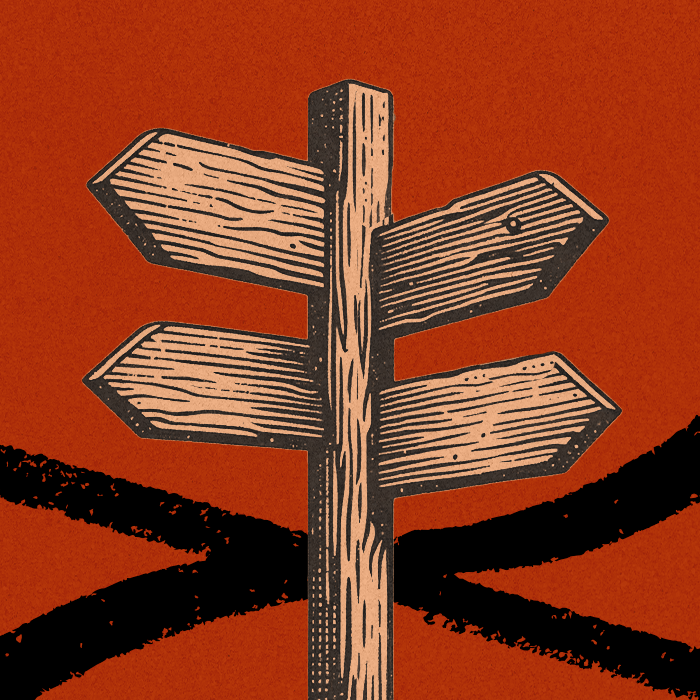
Sponsored By: Elle By Respell
Meet Elle, your AI-powered team member that evolves with your processes and data, integrating seamlessly with Gmail, Notion, Airtable, Salesforce, and more. Elle's genius lies in suggesting, building, and executing workflows tailored to your needs. With the capability to create agents and schedule automations, Elle ensures efficiency and is fully SOC-2 compliant. Try Elle now and experience the future of team collaboration.
PS: Use the promo code PHmagic to unlock the future of teamwork.
As founders, we are constantly faced with choices—where to focus, who to hire, and what direction to pursue. And there are few things worse for a company than a founder who is blocked in making decisions.
Yet making important decisions can be hard. When faced with a choice that might have an existential impact on the business, it's easy to drag our feet and avoid the decision instead of committing to a path and following through.
This was the case in the first company I built, Hacker Paradise, a travel community for digital nomads. My cofounder and I took nearly two years to decide whether to treat it as a side project or a business we were trying to grow.
We tried to make the business financially sustainable, but also shied away from changing it in more substantial ways that might have made it more lucrative (but less fun to run). We worked harder on it than a side project would have warranted, yet focused less on revenue and growth than we would have if we were treating it as a business.
In the end, our indecision made the choice for us. Three years into the business, my cofounder and I burnt out. We had built a nice little business, but one that was shaped more like a restaurant than a startup: we had low margins, and it took a ton of work to run.
At that point, we didn't have the energy to go all in on it as a business, and it was too much work to continue as a side project. So we stepped back and passed the torch onto new leadership.
I’ve observed a similar pattern in friends and clients. From the outside, the avoidance is obvious, and it’s often clear what choice needs to be made. But for the person making the decision, it can still be agonizingly difficult.
Acceptance and commitment therapy (ACT) can help us understand why we get stuck around important choices and how to practice the skill of choosing well. In this piece, we’ll explore the inner barriers to decision-making and how you can unblock yourself to make choices that matter.
Why we resist choosing
There are a few reasons why we shy away from making key choices in our work and our lives.
Choice = loss
In his book, Staring at the Sun, psychologist Irv Yalom writes that major decisions can bring up existential anxiety. We feel this way because choices are like a mini-death, where we lose a possibility of what our lives and work might become.
As Yalom puts it, “For every yes there must be a no, and every positive choice means you have to relinquish others.” If you are unwilling to face the loss that a decision requires, this can lead to procrastination and avoidance.
I see this most often with early-stage founders, who chase overly broad markets instead of making hard choices about who their ideal customer is. When asked who their product is for, they say things like, “Anyone who has a phone,” or, “People who care about their health.” Rather than picking a niche to win and then expand from, they try to be all things to all people.
Even if you have a broad vision for your company, the only way to achieve it is to start with a small and achievable step. Yet choosing not to do everything at once can feel like a loss to a founder, as their fully fleshed-out vision is relegated to the realm of “someday.”
Fear of making the 'wrong' choice
Real choices involve risk. When we make decisions, we open up the possibility of choosing wrong. To avoid the fear of making a mistake, people can end up stuck in analysis paralysis—or simply decide to do nothing, sticking with the status quo by default.
This fear can occur in founders at all stages. At the early stage, people try to think their way to a “right” answer, when what they really need to do is talk to users and get real-world data. At the later stage, founders may hesitate to risk what they’ve already built for an uncertain future, even if that direction might ultimately be better—the classic innovator’s dilemma.
Kodak is an apt example of this. They were the dominant player in photography for decades, holding a strong position in both film manufacturing and camera sales. Despite inventing the first digital camera, Kodak hesitated to make the shift toward digital.
The company was heavily invested in traditional film, and the transition to digital imaging threatened to cannibalize its core business. Eventually, Kodak lost market share to other companies that embraced digital photography, like Canon and Nikon, and filed for bankruptcy in 2012.
The Only Subscription
You Need to
Stay at the
Edge of AI
The essential toolkit for those shaping the future
"This might be the best value you
can get from an AI subscription."
- Jay S.
Join 100,000+ leaders, builders, and innovators

Email address
Already have an account? Sign in
What is included in a subscription?
Daily insights from AI pioneers + early access to powerful AI tools







Comments
Don't have an account? Sign up!
Thanks Casey, this is really helpful. I find it uncanny how often your posts speak to an issue I’m working through!
@JPak -- glad you found it useful!